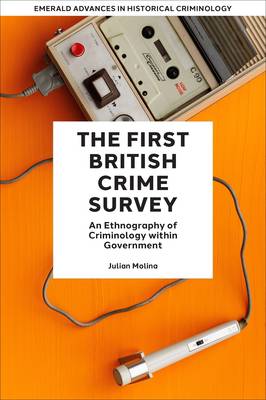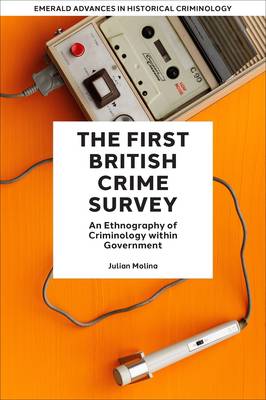
- Afhalen na 1 uur in een winkel met voorraad
- In januari gratis thuislevering in België
- Ruim aanbod met 7 miljoen producten
- Afhalen na 1 uur in een winkel met voorraad
- In januari gratis thuislevering in België
- Ruim aanbod met 7 miljoen producten
Omschrijving
The First British Crime Survey: An Ethnography of Criminology within Government explores the early history of the British Crime Survey, now the Crime Survey for England & Wales, a research enterprise widely perceived to be an international gold standard for the measurement of crime.
Over the past forty years, the survey has reshaped public debate with new insights into patterns of crime and perceptions of the criminal justice system. Currently, the administrative origins of the survey can be traced to the growing influence of an international network of criminologists and public officials focused on crime prevention and measurement, the organisation of Home Office research programmes, and public officials' concerns about urban uprisings, efficiency reforms, media coverage, and the politics of crime.
The First British Crime Survey: An Ethnography of Criminology within Government examines the history of this survey through the work practices of the 'crime survey circus' which developed new methods for counting and reporting crime. Julian Molina provides a novel contribution to the understanding of how government officials, academics, and 'administrative criminologists' address the practical challenges associated with new, large-scale data projects. This ethnography draws on archival sources, interviews with government officials and criminologists, and the author's experience using survey data within government.
A crucial resource for understanding the history of the British Crime Survey, The First British Crime Survey: An Ethnography of Criminology within Government appeals to those interested in the relations between 'law and order' politics, crime statistics, administrative criminology, and the criminal justice system.
Specificaties
Betrokkenen
- Auteur(s):
- Uitgeverij:
Inhoud
- Aantal bladzijden:
- 200
- Taal:
- Engels
- Reeks:
Eigenschappen
- Productcode (EAN):
- 9781803822761
- Verschijningsdatum:
- 23/08/2023
- Uitvoering:
- Hardcover
- Formaat:
- Genaaid
- Afmetingen:
- 152 mm x 229 mm
- Gewicht:
- 435 g

Alleen bij Standaard Boekhandel
Beoordelingen
We publiceren alleen reviews die voldoen aan de voorwaarden voor reviews. Bekijk onze voorwaarden voor reviews.









